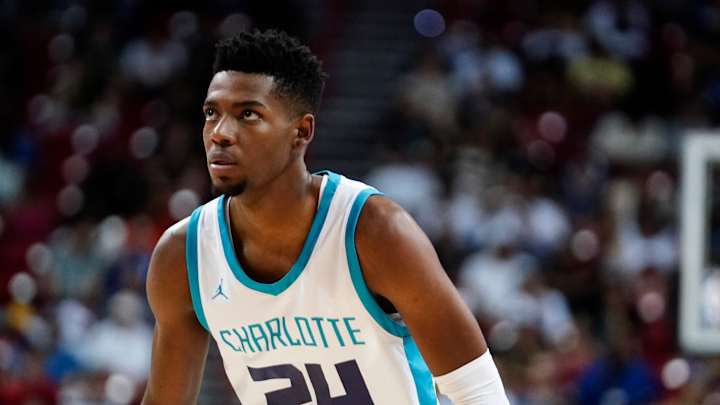Let's Judge Brandon Miller On His Play And Not Draft Slot

In this story:
NBA discourse can be toxic. If a player is drafted too high, fans are quick to use labels and will spend years bringing up draft status as a point of criticism in connection to that player.
But this is where we must all remember that players have no control over where they get drafted. No player will ever forego a high draft slot because they think they're undeserving. Sure, some might prefer to go to a certain destination, and would thus be more than happy to get selected lower as a means of making that destination become a reality.
But to willingly go lower because of supposed better alternatives? No way. It isn't happening.
This brings me to Brandon Miller.
Like a lot of other people, I too would have gone with Scoot Henderson in Charlotte, but at no point can we fault Miller for the decision made by the Hornets front office. Also, least we forget, Miller is one heck of a player, and it's high time we make that a higher point of emphasis than where he was selected.
At 6-foot-9, Miller came into college basketball as a fluid and diverse scorer. The transition to a higher level of basketball was seamless. The shooting carried over, as did his ability to find holes in the defense. He hit 85.9% of his free throws in 170 attempts and canned 106 shots from range. If scoring was all he could hang his hat on, last season's production would still have justified a lottery selection.
But as it turned out, Miller used his lone college season at Alabama to explore different parts of his game, chief among them being his playmaking.
As the season progressed, Miller got more comfortable with the ball in his hands as a decision-maker, making complicated pick-and-roll reads, finding players via odd angles, and even displaying an ability to make cross-court passes, albeit on low volume.
During draft prospect media availability in New York City, when I asked Miller about his evolution as a playmaker, he pointed out that he played point guard growing up, and that going to Alabama helped him due to the quality of teammates around him.
"It helped me, as I had great players around me, so it wasn't all about me," he said.
It's not a surprising answer, as playing with quality players does provide some leeway to developing playmakers. But even so, it should raise the level of optimism around Miller as he enters the NBA. He'll now join a league that has nothing but high quality all around him, which bodes well for his continued development on-ball.
What Miller must end up doing, to optimize his own effectiveness, is creating a sense of balance. He can't get too passive as teams would anticipate the pass. He can't get too trigger-happy, as teams would then play him for the shot.
Finding an appropriate balance is going to take a few years, though. The player he's most often compared to - Paul George - also took a small handful of years to get fully comfortable in both roles.
For Miller, it's right now about landing right and just finding a way to be productive. If he leans in one direction a bit too much early on, it's expected. Most rookies need time, especially players who are just over a year removed from high school.
And it's on us to afford Miller, and everyone else, that time. Getting stuck on draft status, particularly when players have no say in the matter, is not only pointless but woefully unnecessary.
Unless noted otherwise, all stats via NBA.com, PBPStats, Cleaning the Glass or Basketball-Reference. All salary information via Spotrac. All odds courtesy of FanDuel Sportsbook.
Want to join the discussion? Like Draft Digest on Facebook and follow us on Twitter to stay up to date on all the latest NBA Draft news. You can also meet the team behind the coverage.

Morten has managed to create a stable career for himself, launching Denmark's first weekly NBA radio show, and co-hosting a weekly NBA TV show. He's a seasoned basketball analyst and is experienced covering the league and its upcoming prospects.
Follow msjnba